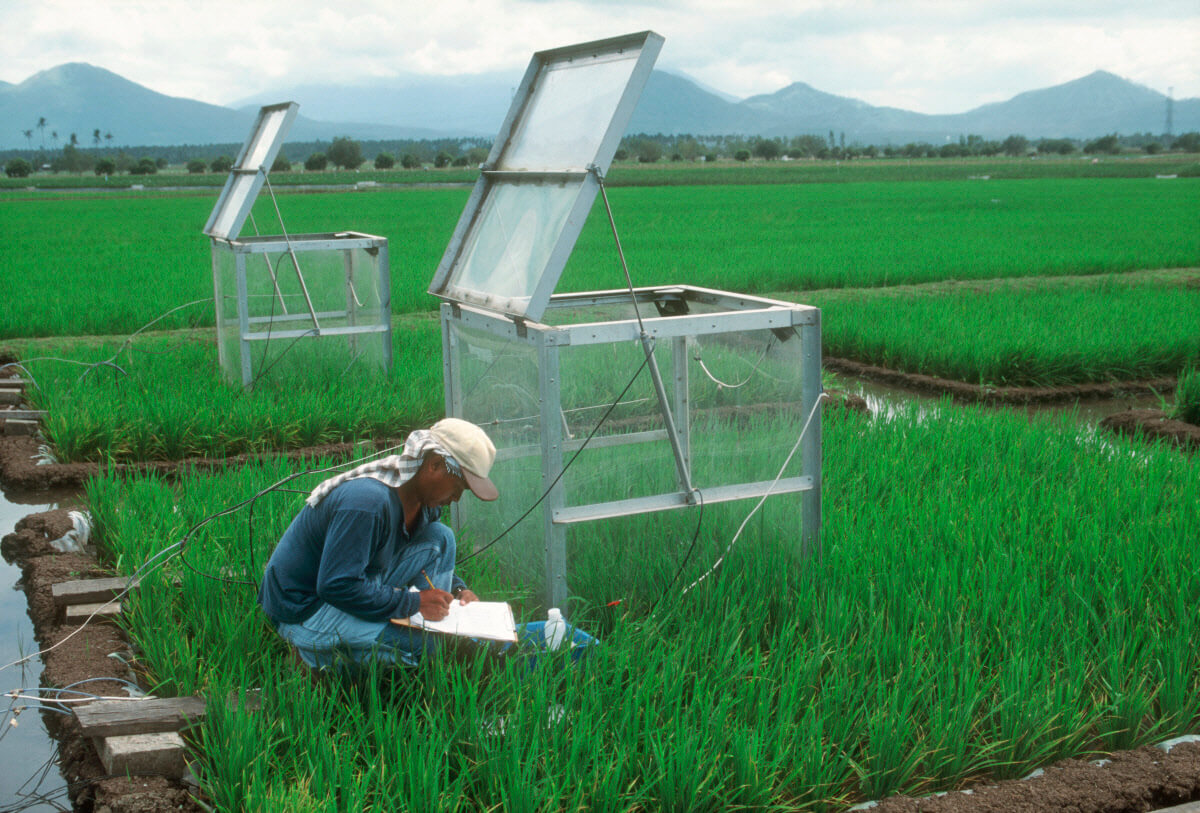Last week’s G7 summit brought important climate progress, though not on the moral duty and scientific imperative of wealthy countries providing abundant climate aid for developing countries. Leaders of the US, the UK, Canada, France, Germany, Italy, and Japan, pledged to collectively halve their own countries’ greenhouse gas emissions by 2030 and to reach net zero emissions by 2050. They also agreed to end financing for overseas coal projects and to support a $40 trillion global green infrastructure plan, Build Back Better World, modeled on US president Joe Biden’s push for climate-friendly redevelopment at home.
All this boded well for a successful outcome at the make-or-break COP 26 global climate summit in Glasgow this November. But those steps alone won’t prevent climate breakdown. Developing countries also must quit fossil fuels rapidly, which will be “impossible” without financial help from developed countries, as United Nations Secretary General António Guterres told NBC News in a recent Covering Climate Now interview. In the 2015 Paris Agreement, rich countries agreed to provide $100 billion a year to help poorer countries shift to climate-smart practices and protect themselves from intensifying heat waves, rising seas, and other effects of global warming.
“This obligation, which was to take effect in 2020, was grounded in the truism that climate change is overwhelmingly caused by the rich but disproportionately punishes the poor,” Mark Hertsgaard, CCNow’s executive director, explained last week in The Nation. To date, though, little of that aid has materialized; and 80 percent of what has been delivered has come as loans rather than grants. Guterres and other experts identified this finance gap as a critical bellwether of G7 leaders’ trustworthiness on the road to the Glasgow summit. “The issue is the credibility of the leaders, and whether we can believe anything they say at all,” Saleemul Huq, director of the International Center for Climate Change and Development in Bangladesh, told CCNow partners in a pre-summit press briefing.
Repeating a long-standing dodge by rich countries, British Prime Minister Boris Johnson tried to obscure the climate finance shortfall by portraying already allocated aid as new, additional aid, as Fiona Harvey reported for The Guardian. And the summit communique offered only these tepid words: “We welcome the commitments already made by some of the G7 to increase climate finance and look forward to new commitments from others well ahead of [November’s] Cop26.” (Amin Aslam, Pakistan’s climate minister, summed up much of the developing world’s reactions: “The G7 announcement on climate finance is really peanuts in the face of an existential catastrophe. It really comes as a huge disappointment for impacted and vulnerable countries like Pakistan.”)
Going forward, news coverage must make clear that supplying such climate aid “is an act not of charity but rather of self-preservation,” as Hertsgaard wrote, citing the recent landmark International Energy Agency’s report which underscored that developed and developing countries alike must race to net zero to avoid the worst effects of the climate emergency. As with Covid-19, the science underscores that no one is truly safe until everyone is safe. “What the pandemic has taught us is, we’re all in one boat,” Rachel Kyte, Dean of The Fletcher School at Tufts University, told PBS NewsHour on Monday. “And that means that rich countries have to … help everybody else come along as quickly as possible too.”
NEWS FROM US
ICYMI, check out our pre-G7 summit press briefing. The summit is past, but there’s still plenty to gain from our talk last week with Saleemul Huq, of the International Center for Climate Change and Development in Bangladesh, and Rachel Kyte, Dean of The Fletcher School at Tufts University. The video and transcript are posted here…
ESSENTIAL CLIMATE REPORTING
-
Conditions in the American West are more extreme now than at any time in the last two decades, and they’re virtually certain to get worse, with above normal temperatures and little rain expected before fall. Reservoir levels are at near-record lows, and the wildfire risk is severe. Data visualizations make clear the progressive impacts of climate change. From The New York Times…
-
In the Rocky Mountains, in particular, wildfires are burning more now than in two millennia. Fire is a natural part of forest life cycles, but it’s less common at higher altitudes, making the damages especially harrowing. “The fingerprints of global warming are all over this kind of fire behavior,” one climate scientist says. From CNN…
-
It’s not just the US suffering from heat in the West. In Mexico, the Cucapá people have watched for decades as infrastructure and agricultural projects choked off the flow of the Colorado River, water they have depended on for centuries. “The people of the cities have to understand that we are affected by what they do,” one Cucapá woman says. “They do not live alone in the world.” From Noticias Telemundo and NBC News…
-
NATO, following a summit this week, said its members will “significantly reduce greenhouse gas emissions from military activities” and assess the feasibility of reaching net zero emissions by 2050. The military sector is among the largest polluters in the world, and decades-long lifecycles for military vehicles means fossil fuel use could be locked in for years to come. At the same time, NATO leaders view climate change as a top security risk. “This is why it is imperative that we start now by investing massively into research and development of carbon neutral fuels and propulsion systems,” a NATO report reads. From the BBC…
-
Nashville, Tennessee and Jacksonville, Florida “offer a climate tale of two cities,” They’re roughly the same size and compete economically—but whereas Nashville has pursued an aggressive and forward-leaning climate action plan, Jacksonville has lagged. Some local businesses in Jacksonville are implementing their own climate mitigation efforts, but without bold action from local government, the city could lose out to others, like Nashville, that have already gone green. From Inside Climate News and Jacksonville’s WJCT Public Media…
-
The Salton Sea, an enormous and hideously polluted body of water east of Los Angeles, has been the subject of countless news stories over the years. Now, in an illuminating fresh take, the Salton Sea is reported to rest upon a vast reservoir of lithium—a metal essential to the electric vehicles and battery storage that rapid global decarbonization demands. While most lithium mining damages the environment, the Salton Sea’s unique geology might make production possible without fossil fuel. And it could bring some 1,500 green jobs to a struggling local economy. From KCRW in Santa Monica…
REPUBLICATION RECOMMENDATIONS
The following stories deserve special consideration for republication by CCNow partners:
-
Mining for lithium, at a cost to Indigenous religions | High Country News
-
Hotels for those left unhoused by wildfires | High Country News
-
Scientists call for solving climate and biodiversity crises together | Mongabay
For partner outlets: to submit stories for sharing, please use this form. As always, instructions for republishing and the full list of stories available for republication can be found in our Sharing Library.
ODDS & ENDS
New extreme weather reporting tool from Climate Central. Our partners at Climate Central are launching a new tool called “Realtime Climate.” Direct from the team there:
Realtime Climate is a new, free service that provides you with timely, personalized alerts when climate connections can be made to unusual weather events or newsworthy happenings in your community.
Realtime Climate topics include extreme temperature and precipitation events, coastal flooding, high wind or solar power generation (based on local installed capacity), and notable local events like Brood X cicadas—with more climate-related subjects in the pipeline.
Climate Central will host a webinar on June 21 at noon US Eastern Time to explain more about Realtime Climate with a panel highlighting additional resources to help tell and visualize local climate-related stories. The webinar will also feature an interview with Prof. Ed Hawkins, creator of the popular Warming Stripes visual. Register here…
Southern California Public Radio is hiring a “climate emergency” reporter. View the job listing here…
If you have any feedback on this newsletter, or know of information that should be included here, shoot us a note at editors@coveringclimatenow.org. That’s all from us today. Thanks for reading, and see you next time!

